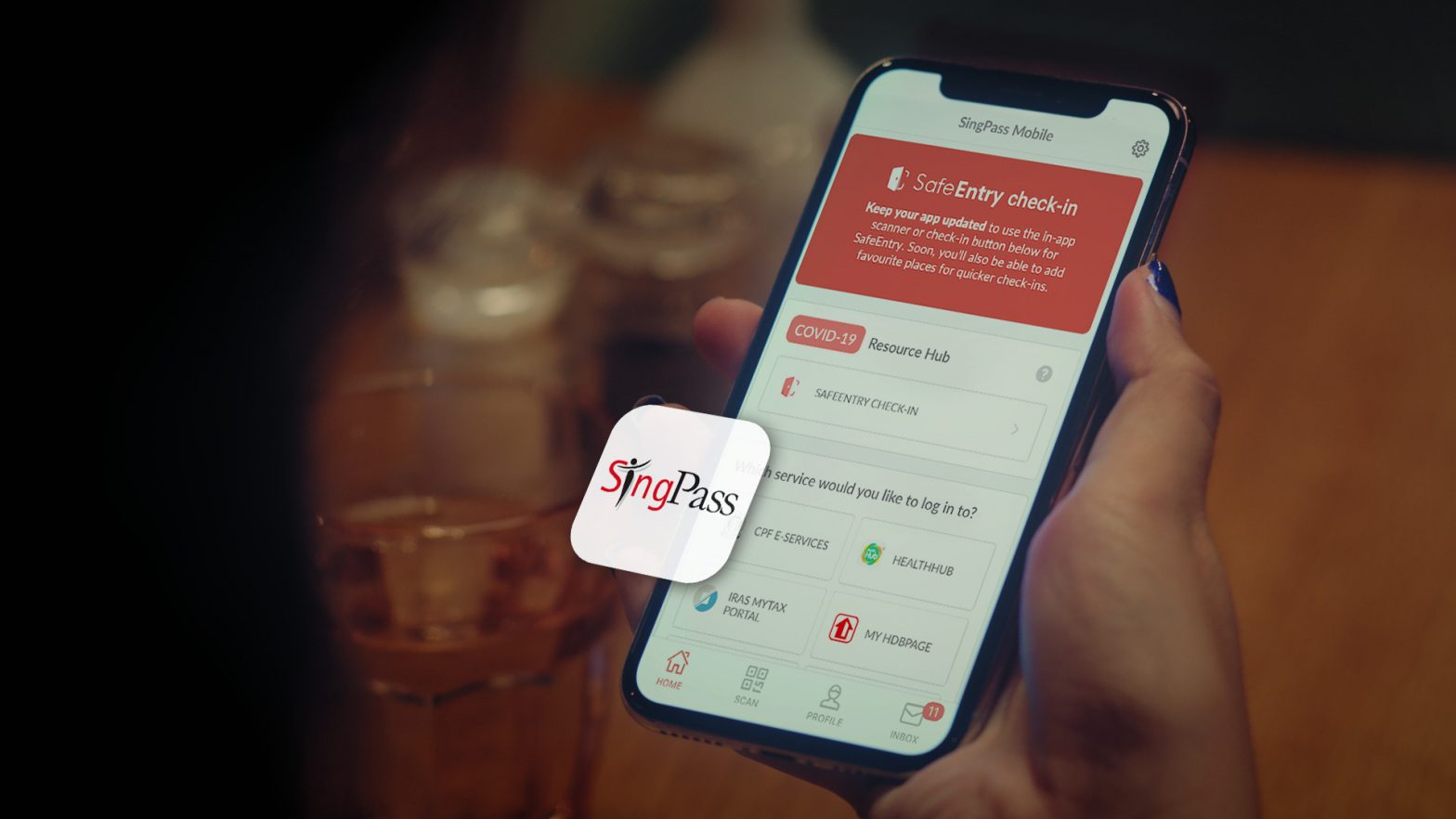
Photo: SingPass
Singapore rolls out facial verification for national digital identity programme
28 September 2020
by Sarah Wray
Citizens in Singapore can now access digital government services and a growing number of private sector ones using facial verification.
Cloud facial verification technology from iProov has been integrated into the SingPass digital identity system, which is used by four million residents and aims to make it more convenient and secure for citizens to transact online. SingPass Facial Verification (SFV) allows users to not only authenticate themselves but also to prove that they are genuinely present – i.e. that they are not using a photograph, mask or ‘deepfake’ video.
Activities such as completing a tax return can now be done with a facial biometric scan.
As well as being available via the SingPass mobile app and online, SFV is also being piloted at kiosks at select customer-facing public agencies to ensure inclusion for those without a mobile phone.
Private sector use
Citizens can already use SingPass or the SingPass Mobile app to log in to private sector services such as banking and insurance, and since July have been able to use the SFV feature to sign up for accounts with DBS Bank. Other features like digital signatures and remote authorisation of transactions will be available later this year, said a spokesperson for GovTech Singapore, the Government Technology Agency of Singapore. Technology from Toppan Ecquaria enables secure integration between businesses and government agencies with the facial biometric authentication.
Andrew Bud, Founder and CEO, iProov, commented: “This marks a tipping point for facial verification. The technology has advanced so much in recent years that it can now provide the highest levels of reliable security for the authentication of a national digital identity programme.”
“The rest of the world will study this innovation and draw conclusions from its success,” he added.
SingPass allows access to over 400 digital services offered by 140 government agencies and private organisations. A GovTech Singapore spokesperson said it is critical to achieving Singapore’s Smart Nation vision of transforming government agencies and delivering benefits to citizens and businesses through digital technology.
Privacy
As several cities in the US move to ban facial recognition systems, Singapore is keen to stress how its facial verification initiative differs. A GovTech Singapore spokesperson told Cities Today: “Unlike the use of biometrics for surveillance, SingPass Face Verification ensures that the user is aware and that their explicit consent is sought before proceeding with the verification process. It also provides a personal benefit for the user as the process is frictionless and provides an assurance that the system is designed with their privacy in mind.”
The system means citizens no longer need to set up passwords or share sensitive data with every individual company.
Singapore’s system incorporates personal data protection principles including: data minimisation, where only the necessary data is collected; consent-driven, where user’s consent is sought before commencing the verification process; and purpose-driven, where SFV is only used for the particular transaction. Images collected during face verification are only retained on government servers for 30 days.
The spokesperson said: “In addition, no personal data is shared with the private sector and only a matching score will be returned when the facial image is verified against the government’s biometric database. SFV also removes the burden of collecting, storing and securing data for businesses who would like to use this service.”
However, Ioannis Kouvakas, legal officer with London-based Privacy International, noted to the BBC that: “Consent does not work when there is an imbalance of power between controllers and data subjects, such as the one observed in citizen-state relationships.”
In future, Singapore intends to explore SFV use cases such as enabling students to prove their presence and identity when taking an exam, and allowing organisations to verify a user’s identity for access to restricted areas.
“Growing these useful digital services with the private sector ensures productivity and efficiency for businesses, as well as convenience and secured transactions for our citizens,” the GovTech Singapore spokesperson said.







